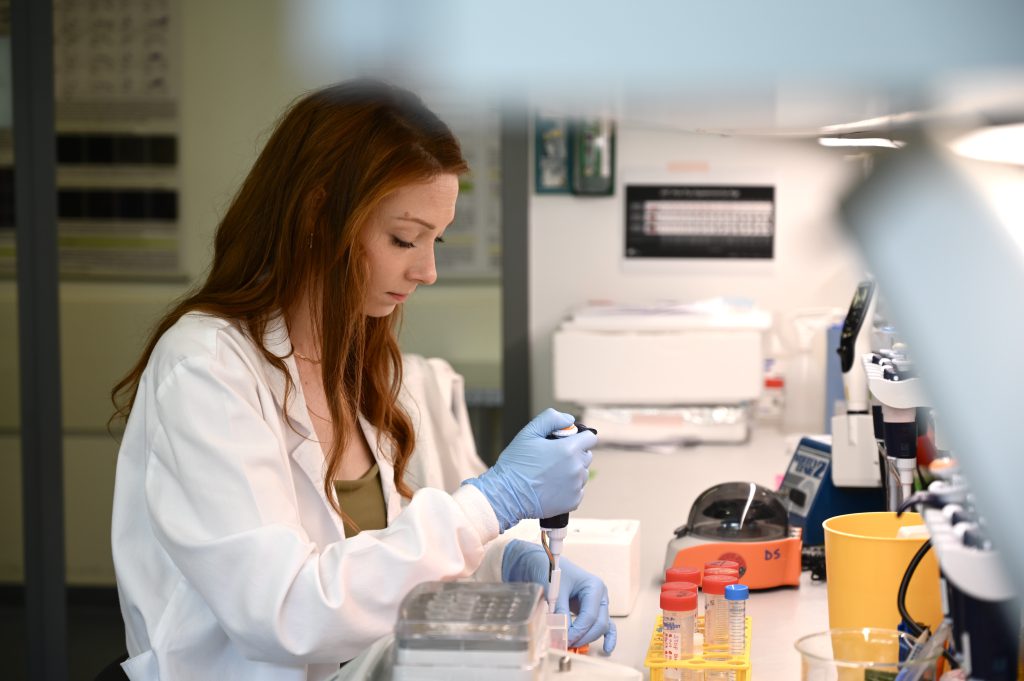Resistance is Futile: DOC Fellowship for Cancer Resistance Research
Leonie Lehmayer, a dedicated early-career researcher at St. Anna Children’s Cancer Research Institute, has recently been awarded a prestigious DOC Fellowship from the Austrian Academy of Sciences. Her PhD project focuses on studying enhancers and their role in drug resistance and relapse in cancer patients.
Many stories of children with cancer start with hope: they initially respond well to treatment, but after some time, the cancer returns. This relapse is often caused by drug resistance. However, the mechanisms underlying this resistance are as diverse and complex as the disease itself, depending on the type of cancer, the genetic background of the patient, and the medication used.
Leonie Lehmayer, a PhD student in Davide Seruggia’s lab, is focused on pediatric leukemia research and aims to tackle this puzzle of resistance. She has recently received a DOC Fellowship from the Austrian Academy of Sciences, which will financially support her project.
Enhancers as a Key to Drug Resistance
Increasing evidence suggests that drug resistance can develop in the absence of any mutations. This is particularly relevant for cancers like pediatric leukemia, which compared to other cancer types, has a generally low mutational burden (how many novel mutations within a timespan are acquired). Enhancers, which regulate how much of a specific gene is transcribed, could be the key in deciphering the pathways of epigenetic drug resistance acquisition.When an enhancer of a drug transporter is active, more of this gene is transcribed and ultimately more transporter protein produced. Consequently, the drug is exported out of the cell faster than it can exert its effect.

Challenges in Identifying Enhancers
However, identifying enhancers poses a significant challenge, as there is no single DNA sequence found in every enhancer. They are scattered throughout our non-coding DNA, which makes up 98% of our entire genome. Since all our cells basically have the same genetic material, they also have the same number of enhancers – the only question is which ones are active. Leonie plans to develop a genome-wide epigenetic screen in which she either activates or suppresses various enhancers. By exposing the cells to a chemotherapy drug, only those cells will survive in which a survival-promoting change has taken place. In this way, she hopes to identify those enhancers that lead to cancer cells developing resistance to a particular drug.
Towards Better Treatments for Pediatric Leukemia
The ultimate goal of their research is to understand the mechanisms of drug resistance based on the enhancers in order to ultimately find better treatment options for pediatric leukemia patients. If a relapse occurs, this knowledge should help to improve treatment options and give new hope to affected children.